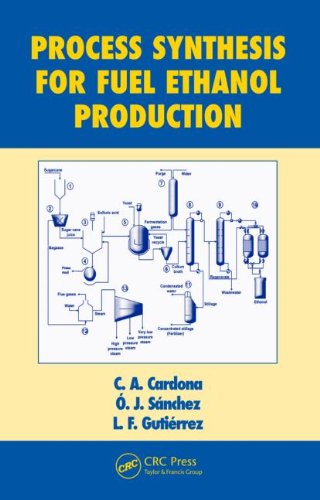

Most ebook files are in PDF format, so you can easily read them using various software such as Foxit Reader or directly on the Google Chrome browser.
Some ebook files are released by publishers in other formats such as .awz, .mobi, .epub, .fb2, etc. You may need to install specific software to read these formats on mobile/PC, such as Calibre.
Please read the tutorial at this link: https://ebookbell.com/faq
We offer FREE conversion to the popular formats you request; however, this may take some time. Therefore, right after payment, please email us, and we will try to provide the service as quickly as possible.
For some exceptional file formats or broken links (if any), please refrain from opening any disputes. Instead, email us first, and we will try to assist within a maximum of 6 hours.
EbookBell Team

0.0
0 reviewsProcess engineering can potentially provide the means to develop economically viable and environmentally friendly technologies for the production of fuel ethanol. Focusing on a key tool of process engineering, Process Synthesis for Fuel Ethanol Production is a comprehensive guide to the design and analysis of the most advanced technologies for fuel ethanol production from feedstocks. It describes how process systems engineering can be applied to fuel ethanol production to achieve new levels of efficiency according to technical, economic, and environmental criteria.
Drawing on the authors’ more than 15 years of process engineering and ethanol research, the book first focuses on liquid biofuels, before examining the role of process synthesis in the rapid and high-tech analysis and design of complex biotechnological processes. It then describes various types of feedstocks, including sugars, starchy crops, lignocellulosic biomass, and microorganisms, as well as hydrolysis technologies, such as saccharification. The authors cover the fuel ethanol production technologies for different feedstocks, the new technological innovations based on process integration to reduce energy consumption, and the environmental issues of bioethanol production. They also discuss the technological configurations for fuel ethanol production in the industry and the possible factors affecting food security with fuel ethanol production and consumption.
Supported by case studies that include calculations and discussions of results, this book uses a process engineering approach to explore the analysis and development of fuel ethanol production from different feedstocks. It shows how accurate analysis and precise design, along with responsible government policies, can lead to fair and sustainable development of energy crops worldwide.